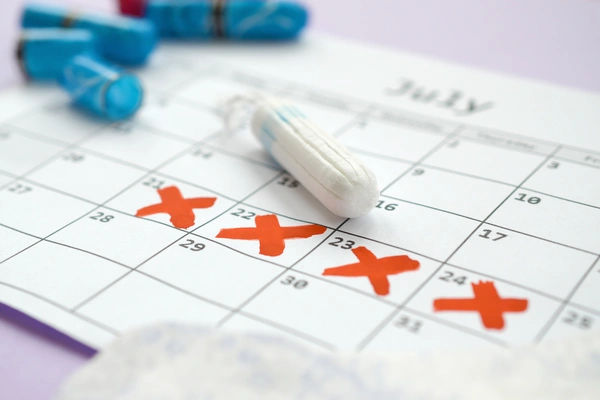- female
- 25 Years
- 22/01/2025
Ive been told to take gynaset twice a day for five days to trigger my period. If I stop taking it, will I get my period right away? Im planning to travel on the 18th and started the medication on the 5th. Will my period be finished by the time I need to leave, or should I keep taking the gynaset until my trip is over to push back the period? Could use some advice!
Answered by 1 Apollo Doctors
Periods are expected to start 2-7 days after stopping these tablets. In order to be sure to avoid periods during travel, you can take the tablets till the day of travel or until the day you complete your travel.
Dr. Dhankecha Suggests...
Consult a Obstetrician and Gynaecologist
Answered 04/07/2025
0
0

More Obstetrics & Gynaecology Health Queries
View allI've been prescribed Levocetirizine dihydrochloride 5mg for my gluten allergy, and I'm currently 7 weeks into my first trimester of pregnancy Is it safe for me to keep taking this medication right now I'm feeling a bit worried about any possible effects on my baby
Levocetirizine is generally considered safe during pregnancy, especially in the recommended doses. However, as you are in your first trimester, it's important to consult your healthcare provider before taking any medication, including levocetirizine, to ensure its the best option for your specific situation.
Answered by 1 Apollo Doctors
I'm putting this tablet in my vagina at night, but when I check in the morning, it comes out swollen and still in the same shape. Is it actually doing anything?
See a specialist for accurate diagnosis and targeted treatment.
Answered by 1 Apollo Doctors
My wife is in her 10th week of pregnancy and has been prescribed ONDEM MD 4 to help with nausea and vomiting. The instructions are to take it twice a day, but we're a bit worried if it's safe to use on a daily basis. Also, one evening she unintentionally took a double dose. Should we be concerned about any side effects from that? Really appreciate any insights you can share.
Ondem MD 4, containing ondansetron, is generally considered safe for pregnant women to manage nausea and vomiting, but should be used under medical supervision; taking a double dose by mistake may cause side effects like headaches, dizziness, or constipation, but these are usually mild and temporary
Answered by 1 Apollo Doctors
Disclaimer: Answers on Apollo 247 are not intended to replace your doctor advice. Always seek help of a professional doctor in case of an medical emergency or ailment.





